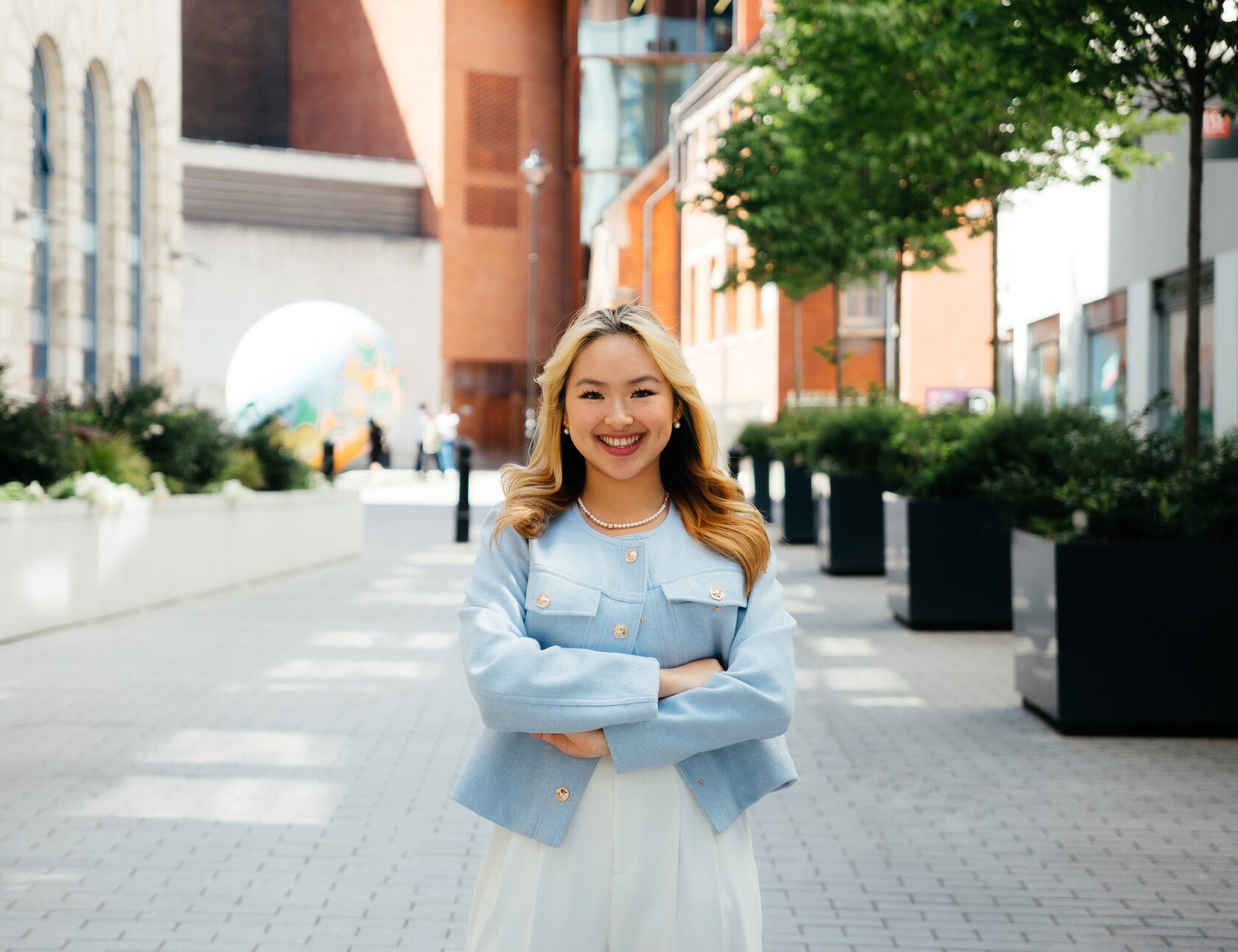On a quiet Saturday afternoon in London, I sat down with Jenn Zeng — a conversation that would stretch over four hours and leave a deep and lasting impression. She is the kind of person who doesn't simply lead and speak — she reflects and thinks deeply. And when she shares, she does so with rare clarity, authenticity, and curiosity.
At just 20 years old, Jenn is already leading one of the UK’s most active and largest university entrepreneurship organisations as the first female President of LSESU Entrepreneur Society. But titles don’t capture her essence. What defines her is a deep sense of self-awareness, intentionality, and authenticity — in how she leads, learns, and lives.
Born in Hungary to Chinese parents, Jenn’s story moves across three different continents and four different countries — a childhood in both Hungary and China, secondary education at the American International School of Budapest, a brief university journey in Toronto, Canada on a $100,000 scholarship, and finally, a new beginning at the London School of Economics (LSE).
She has led LSE’s campus-wide project on women’s public safety that reformed institutional policies, reviving two struggling student societies into impactful and thriving hubs, and built communities to empower high-performing Gen Z women leaders. Yet, it is not the scope of her achievements that impresses most — it is the depth. In this conversation, Jenn shares her journey — what it took to make a life-changing decision at 18 years old, what life principles drive her high performance at university, and how she’s learned to live a life with self-awareness, joy and purpose.
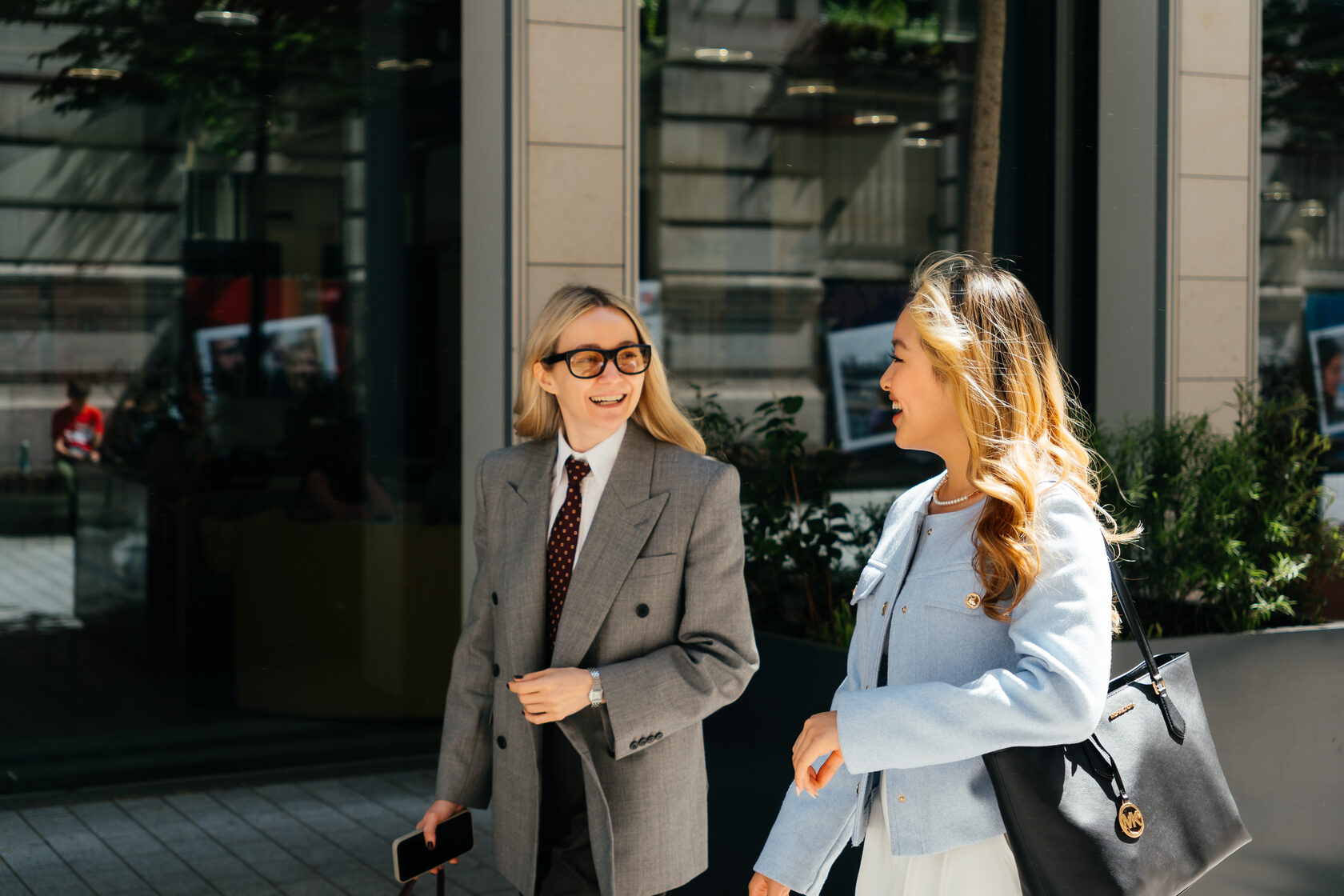
Jenn, thank you so much for your time. Let me begin with your early years. You have such a multicultural background — Hungary, China, and now the UK. How has that shaped you?
I was born and raised in Hungary, and went to kindergarten there. I spent 5 years in China from the age of five to ten to learn Mandarin, which has really helped me to connect with my ethnic roots and culture. Later, I came back to Hungary and finished my secondary education in the American International School of Budapest. So I moved quite a lot and switched in between multiple languages from Hungarian, to Mandarin and to English.
I think growing up across multiple cultures from an early age is incredibly lucky as it not only provided me with a broader worldview but also trained me with resilience and high adaptability skills. It also made connecting and becoming friends with people from all around the world a lot easier.
You had the opportunity to study in several countries. Why did you initially choose Canada?
I had offers from universities in the US, UK, and Canada. But at the time, Canada felt like a good mix of stability and something culturally new to explore. I also received a $100,000 scholarship to study psychology and human resources, so I just went.
However, it felt like the right option until 2 weeks into university, where my first psychology lecture was packed with 1,000 students in the graduation hall. Coming from a class of only 20 people back in high school, that was a big change in academic style. I was not used to the passive style of learning with a lack of opportunities to build personal connections with professors and have insightful discussions with other peers. We had tutorials outside of lectures, but it was still so large with 50-70 people each class. I want to spend my university years learning and equip myself with essential knowledge and skills for the future, while my prefrontal lobe is still developing. So I guess, if I was in Canada to study, the learning style is probably not the right fit.
Secondly, there were issues with safety in North America. My bag got stolen in the university gym and my phone was pickpocketed on the street. There were people high on drugs, stabbing cases in the metro and random shootings. I just didn’t feel safe like how I used to feel in Europe. And when you don’t feel safe in a place, you are not free.
And then, the third factor was looking into my long-term career vision. I didn’t really imagine myself working in Canada in the long-term. So with all three factors in consideration, I have made up my mind and decided to make a change.
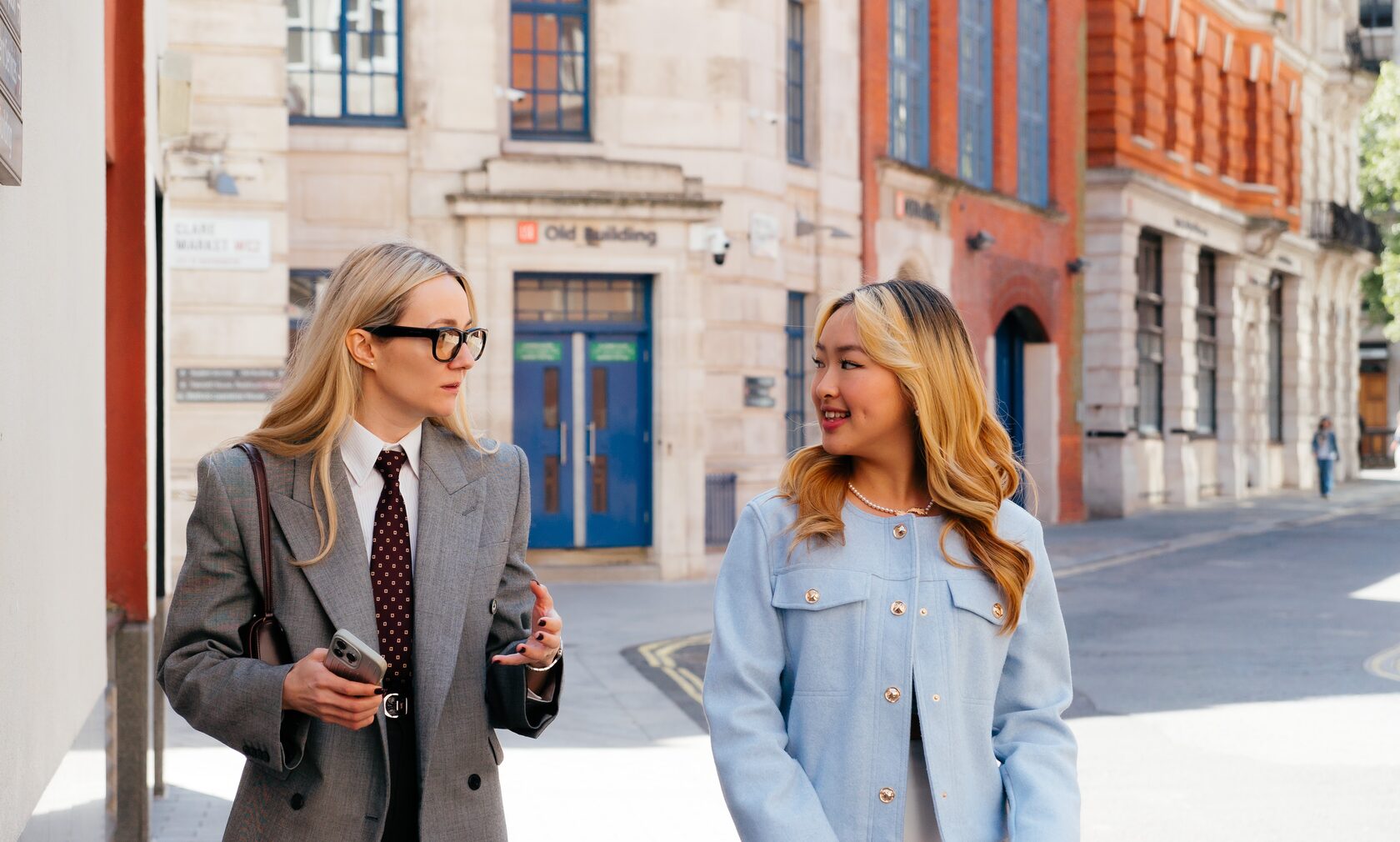
Was it hard to make the decision to leave?
Extremely. I was so lucky and grateful to meet some of the most amazing people in my life while I was in Toronto. But deep down, I have to consider what suits me the best professionally and where I would feel better realistically. Many students feel trapped once they’ve chosen a university feeling like there’s no going back. But I believe you have the power to change your life and rewrite your stories when you notice something isn’t right, especially when it’s still early on.
I remember back in October 2022, I called my mom, literally in frustration and tears. I didn’t like the academics, I didn’t feel safe, and I wasn’t sure if I should still stay or not. She told me to wait a little longer to get a more comprehensive understanding and see how I feel in three months. I did. A semester passed, and I still felt pretty much the same.
It was in mid January — and UCAS was closing in a few days. I had everything ready except the last paragraph of my personal statement. I was procrastinating, unsure, as I already felt so much better coming back to university in a new semester. I remembered that I phoned my sister and asked for her advice. She said, “You have nothing to lose by just submitting the application.” That gave me so much motivation and energy that I got up from my sofa immediately, wrapped up that final paragraph and submitted everything I had prepared for so long before the deadline.
Which universities made your final top five?
I applied to LSE, UCL, St Andrews, and Edinburgh. I didn’t apply to LSE before for the first round as I thought, “It feels a little bit weird to study psychology at an economics school.” But after experiencing university life in Toronto, I knew what to look for when I am choosing my universities.
On International Women’s Day of 2023, I was just starting a regular day and woke up at 8 am in Toronto time. I opened up my mail box and saw an email from UCAS stating that there’s a track update. I logged in and saw this long university name: The London School of Economics and Political Science has given you an offer. I jumped out of my bed and was filled with so much excitement that I facetimed my parents and my sister. I was finally going back home to Europe. After LSE’s offer, I withdrew all my other options because I knew this was the one.
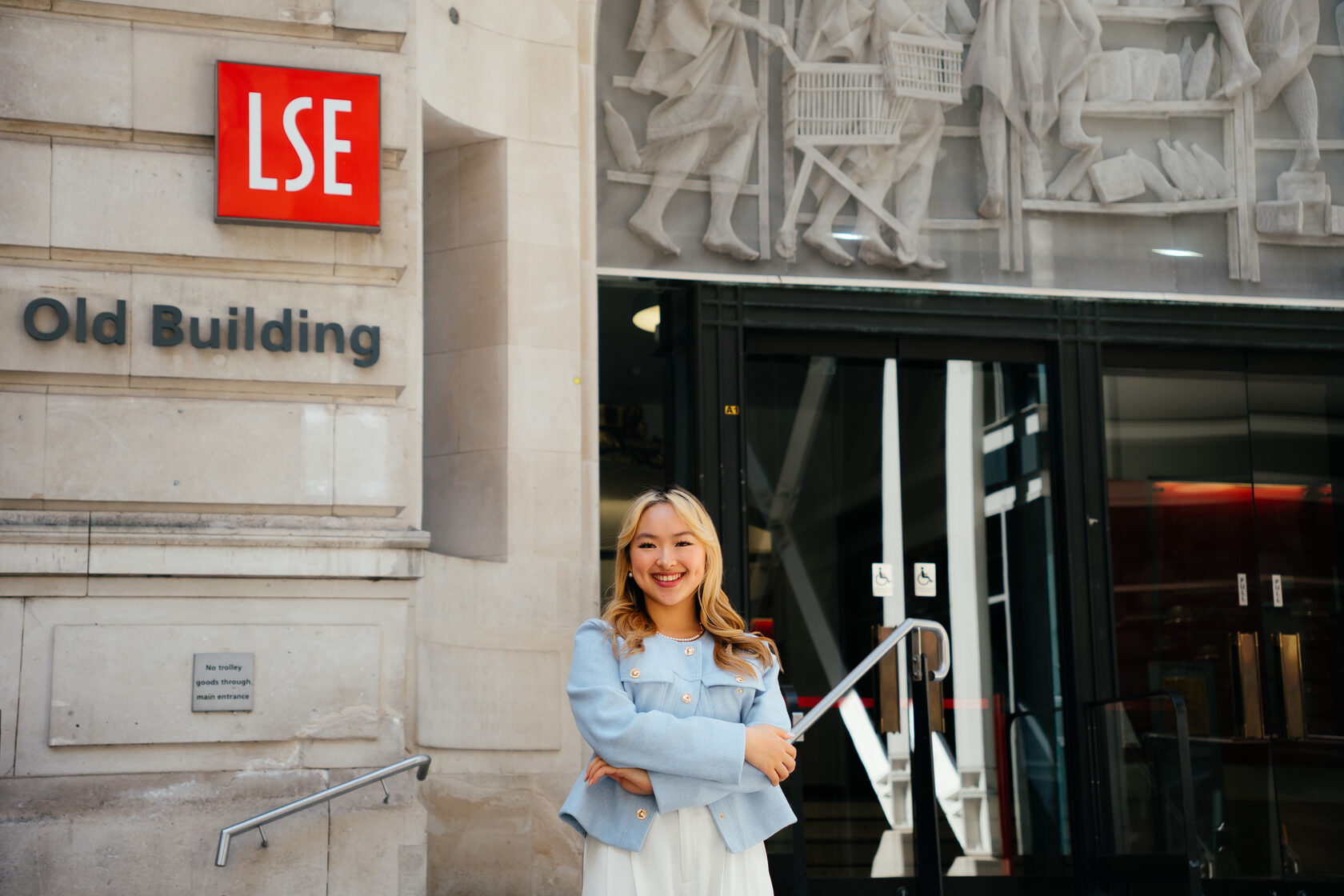
Did you expect to get a scholarship?
Not at all, I was just giving it a try as I already know that scholarship exists in university because of my scholarship at the University of Toronto. I submitted the application on the last day. For LSE, you submit one application for multiple scholarships where they will decide for you on which ones you are eligible for. Initially, I was unsuccessful in my scholarship application when I heard back at the end of July. It was fine as I know it’s really competitive — my family had prepared to pay.
But then, two days before my birthday in September, I got an email stating that I received an LSE scholarship. I opened up and it was around £30,000 per year, which is more than enough to cover my full tuition fees. I ended up being fully funded — full ride for my whole LSE undergraduate program until I graduate. I think it came purely out of luck — probably someone else didn’t make their LSE offer, and I was the lucky one. I actually just had lunch with my donor yesterday. The conversation was so amazing that it lasted four hours.
That’s incredible. And academically, were you always strong?
I guess so. In IB, I was predicted 45 out of 45 and I think to get into LSE required a minimum of 38 or 39. I studied really hard back in high school and I was interviewed by Cambridge, but didn’t get in at the end. UCL also rejected me for some reason in the first round — on the same day where I won 5 IB academic awards in my graduation class. I didn’t understand why back then, but now looking back, I think it was all meant to be. Right now at LSE, I am still performing surprisingly well alongside all my other responsibilities. I am getting my first-class grades and aiming for a first-class degree to wrap my undergraduate studies.
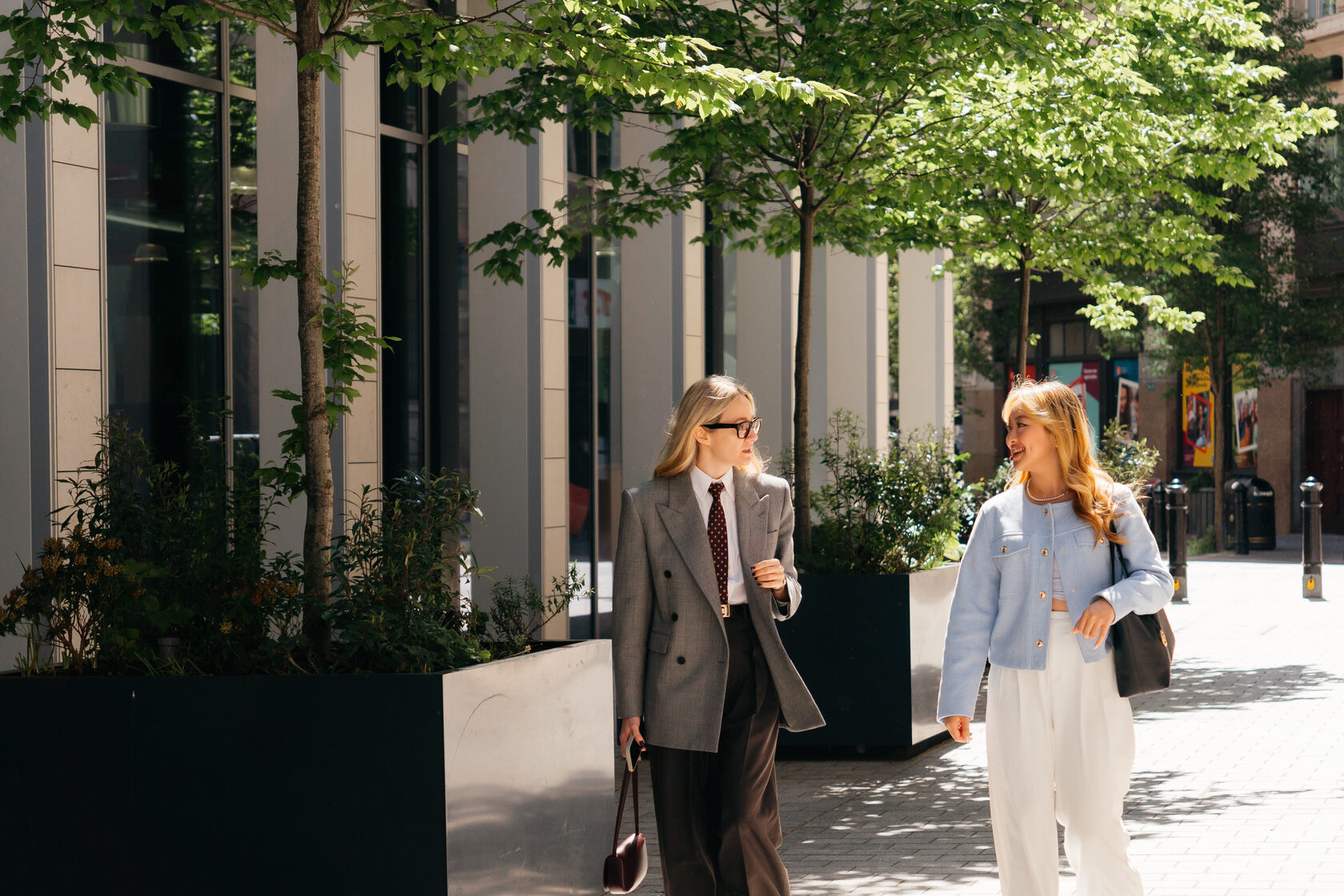
Tell me about your personal statement — what did you focus on?
I think one most important key to personal statement is to really understand the universities’ values. For LSE, it is knowing the cause of things for the betterment of society (rerum cognoscere causas). My personal statement was very academically heavy, with lots of critical reflections, but also emphasised on the importance of using our knowledge to solve real-world problems. I explored three different areas of research in psychology.
The first was how I got into psychology, where Temple Grandin’s documentary sparked my curiosity to explore autism and psychology. My 4,000 words extended essay back in IB was also in psychology. I researched on the effectiveness of canine-assisted therapy — how human-animal bond and therapy dogs can improve social interaction ability of autistic children. I loved my research and this field was very much underexplored at the time. I reflected on the challenges that exist in autistic research and proposed the need for participatory research models to include voices of neurodivergent individuals. This is critical to enhance our understanding of behavioral measurement as past research only utilised neurotypical standards to assess social interaction behavior of neurodivergent individuals, which I believe is a flawed framework.
Then, I dived into some pop psychology discussing the significance of Dweck’s growth mindset in educational psychology where I evaluated its existing challenges in research, issues with generalizability and measurement validity. I also added a paragraph after theoretical discussions about my extracurriculars, leadership, and advocacy projects.
My closing line touched on equity, inclusivity, and justice. It was in general very heavy in academic theories but I think this is the style of british university applications. However, I also emphasized a lot on the importance of theoretical applicability to solve real-world problems. As there are only 4,000 characters allowed, every single sentence is rich and serves a purpose.
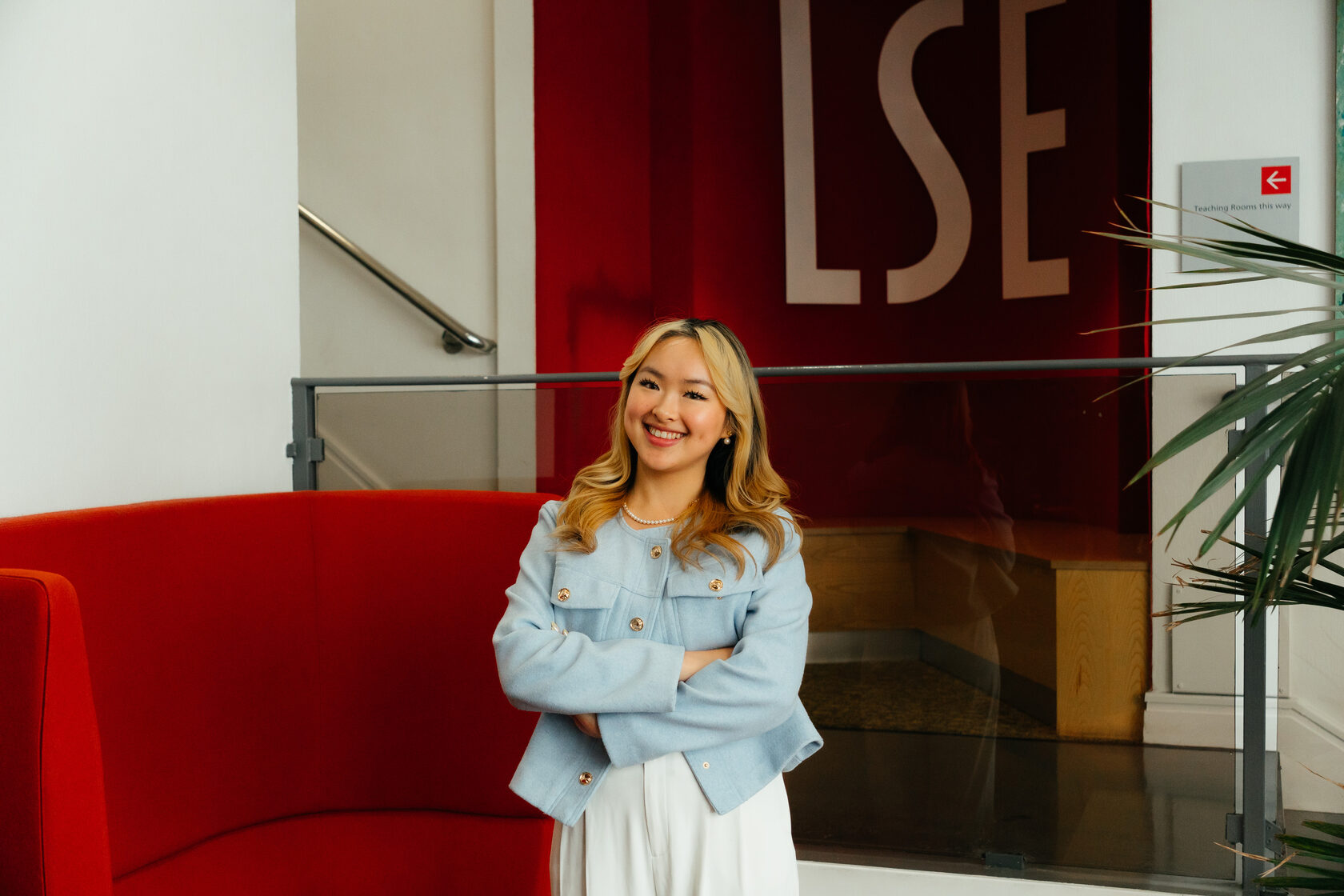
You’re now President of the LSE Entrepreneurs Society. How did that role come to you?
Entrepreneurship has always been in my heart. During my first year, I wasn’t heavily involved yet, but I developed great friendship with the former president. He was also a part of the World Economic Forum Global Shapers — which I’m also a part of — so that’s how we first connected.
I think growing up in an entrepreneurial family also shaped my vision as my parents were also in business. I am still in awe today of how they managed to go through everything while migrating out of China to Hungary 30 years ago, where there was no translator, no Google Maps, — just grit and resilience. Business-mindset family and also having a multicultural upbringing — being bilingual — shaped how I approach decision-making and leadership.
I actually just did a psychology research paper on how bilingualism shapes second-generation immigrant entrepreneurship. When you grow up speaking more than one language, your brain is wired differently. Not only do you know how to speak the language, you also understand the underlying cultural nuances. You become more open, adaptable, and better at problem-solving as you can draw from multicultural perspectives.
I stepped in as the first woman president of the society in 2025. The society was actually struggling financially and I had to rebuild from the ground up. We shifted to a project-based model, focused on value delivering, and in the end, we delivered over 20 impactful events just in 2.5 months of operations.
And through the Entrepreneur Society, I’ve also been working with the LSE Philanthropy and Global Engagement Centre (PAGE). As a scholarship recipient myself, I want to give back. So I’ve been helping them to connect with influential alumni, entrepreneurs, and donors through our society initiatives and networks.
Besides, I was also nominated for Outstanding Contribution to the SU Award during my first year. I think I was the only woman and only first-year student nominated. I came out of a huge surprise as everything I do was ever done for recognition but simply out of my personal drive, wanting to solve the problems I care about. This year, my new initiative at LSESU Entrepreneurs “Co-Founders Connect” was also shortlisted for Best New Initiative/Event Award of the Year, which I am super happy and grateful about.
Tell me about Co-Founders Connect — what inspired it?
The idea emerged after a fireside chat that I hosted at LSE, where my friend and I noticed that so many LSE students have great ideas, but they struggle to find compatible co-founder. So, we created a structured networking event supported by LSE Generate and sponsored externally. Students showed up from 10+ universities — even as far as Bath and Sussex. I think this changed my mindset on how you don’t need a huge budget to create impact, just clarity, values and great execution.
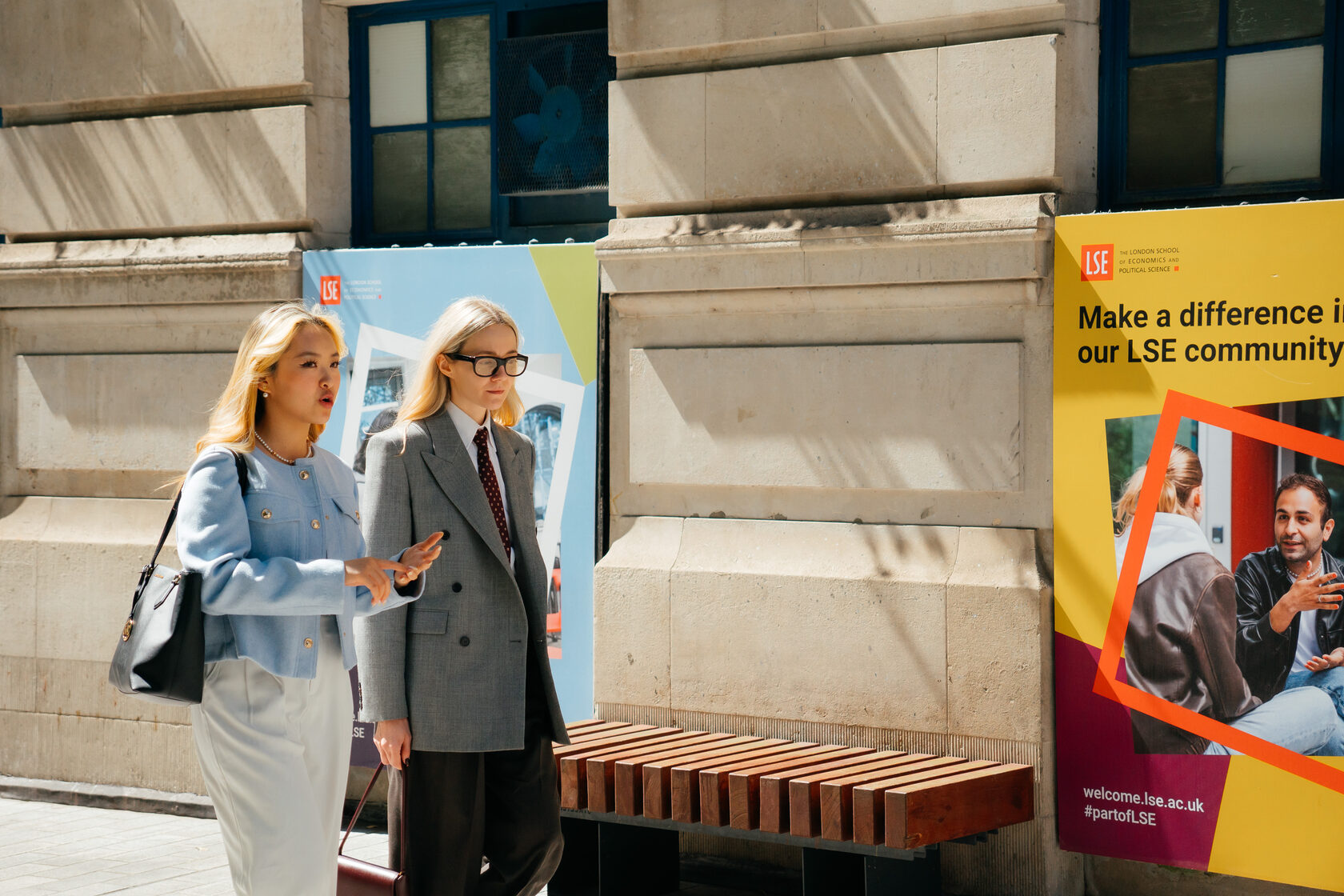
You also led a student research project on campus safety?
Yes. The first month living in London during my first-year, I was sexually attacked with my friend at Blackfriars Station. A group of guys on bikes — one screamed, the other tried to grab me. When we reported it, the accommodation staff only asked if we’d lost any property and the police were dismissive. That shocked me.
So I proposed a student-led Change Makers research project, which was later funded by the Eden Centre, on student attitudes toward campus safety and sexual misconduct. Our research was presented to the LSE Leadership team and proposals were adopted. Now these changes in Consent Education policies are influencing over 15,000 students and staff at LSE.
With everything you’re doing, how do you manage your studies?
I think what guides my decision in everything in life is authenticity and joy. My Chinese name, Shuyue, actually reflects my personality really well — 'Shu' means comfort, and 'Yue' means joy. That’s actually how I want to live my life, a life that is comfortable and joyful. How I was able to manage everything simply comes down to where my heart tells me to do and what gives me energy. I think how you spend your time is super important, because time is literally money. So I only choose to do things that I genuinely enjoy.
Self-awareness has helped me so much in learning about myself and recognising what I love. Once you know what brings you joy, what you value, decision-making becomes much easier. It’s a guideline for how to live. And I actually wrote an article on self-reflection that was published by my department. The year I spent in Toronto has transformed my life and accelerated my growth. Since I was completely on my own, away from my family, and building everything from zero on a new continent. That forced independence furthered my personal development and helped me get to know myself better.
Sometimes I look back and think, wow — I’ve lived in four countries, on three continents, a lot of it on my own. And it’s when you’re out of your comfort zone that you grow the most. I’m really grateful for everything I’ve been through. Even Toronto. Because without that, I wouldn’t be at LSE. If I’d gone to Edinburgh or California, I wouldn’t be here. That year of challenge helped me become more mature and more self-aware. It shaped everything.
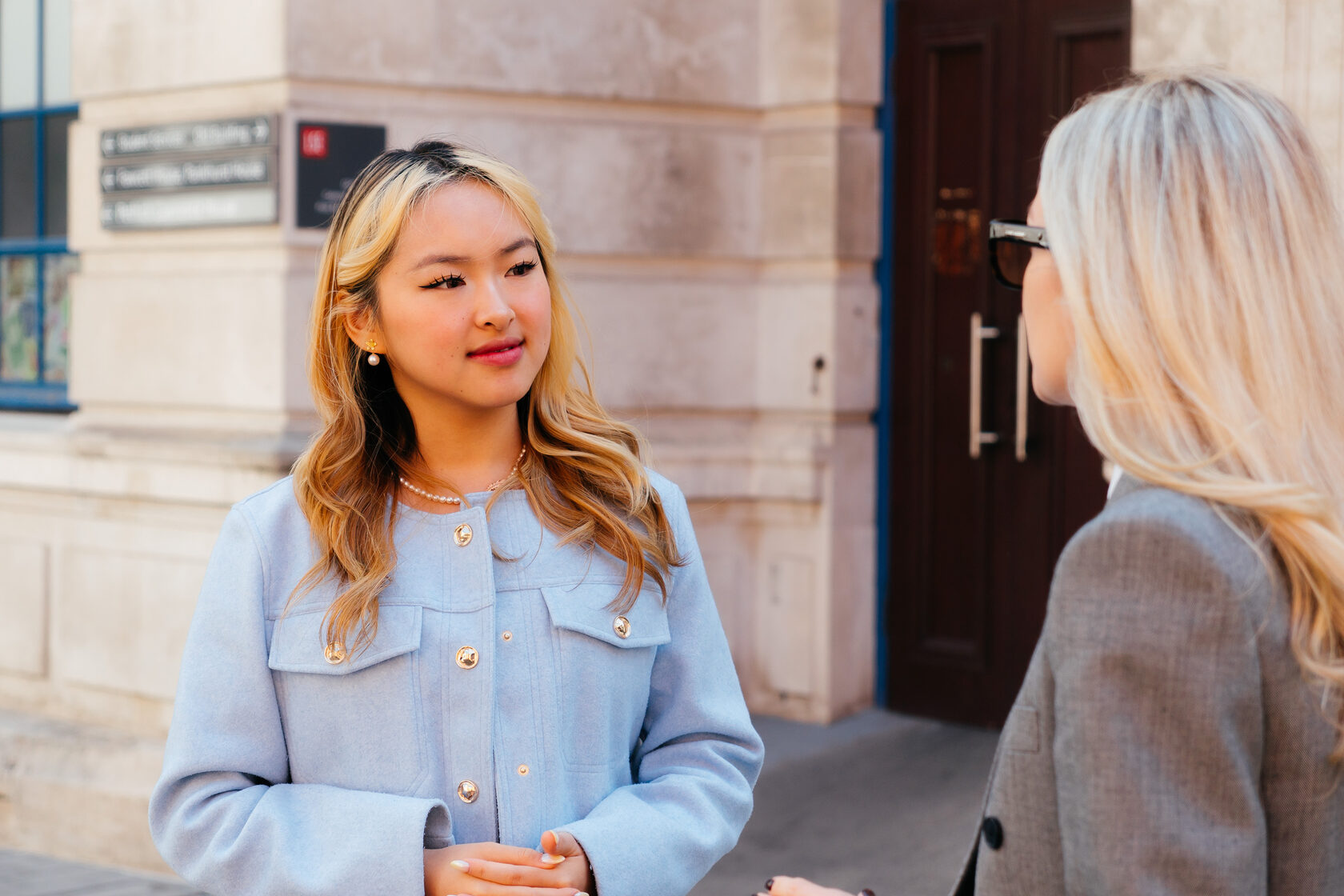
That’s beautiful. What helped you build that self-awareness?
I love journaling and I think journaling helps you gain a deeper clarity about yourself and stay present. I journal from a third-person point of view, like I’m writing to a friend. I usually open my journal with “Hey JenJen Diary, how are you?” If I was to process any emotion, I would come back to my journal and ask what I’m feeling now, why am I feeling this way, what I can do next to solve it by recognising the causes if it was a difficult emotion. And as always I always wrap up my journal with self-affirmations: “You’re strong. You’re powerful. You are loved and you’ve got this.”
Besides, morning meditation and reading were helpful too. I discovered Good Vibes, Good Life by Vex King when I was 18, in a bookstore in Budapest. I brought it with me to Canada and read it in a park. That’s when I first started to really understand the importance of self-love. I also read Healing Is the New High by the same author. It helped me understand that when it comes to any forms of trauma, you are the only person who can truly heal yourself. So building a good relationship with yourself is incredibly important and powerful as everything is temporary in this world. Your time with friends, family, and people are all temporary. You are the only one that you will be with for the longest time in your life. So give yourself love, take care of yourself and do what excites you!
So what does your future look like?
Honestly, I am not sure. I think with everyone at LSE being driven by careers in finance or consulting, it is easy to fall into the conventional trap. I always stand by the belief that “you shine the brightest by being yourself”. I believe that everyone is born with different talents and have different life paths. I am not in a rush right now to decide on my career forever. I am very open and flexible to try out whatever industry that interests me. Currently, what interests me now is branding, entrepreneurship, and talent acquisition. I still have one more year at LSE and perhaps my thoughts would be completely different after my graduation. I think don’t give yourself too much pressure and have the urge to have everything figured out in your early 20s. Do what truly excites you, enjoy life a bit more, and experience them fully and boldly.
I did 4,000 meters skydiving when I was 16 and bungee jumping when I was 17. The world is so big and there’s so much to experience. You only live once — so be courageous while you are young to try things that are exciting.
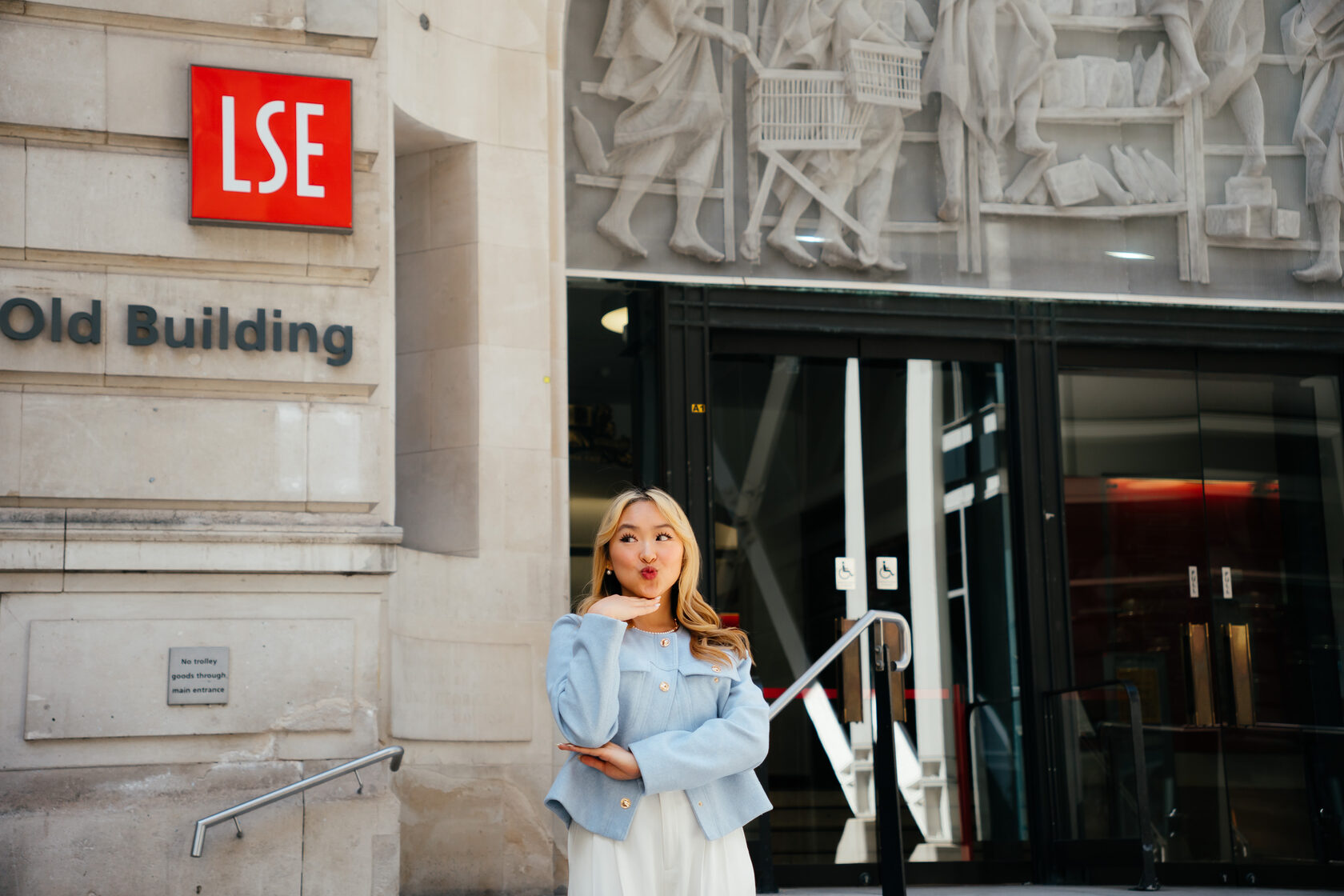
Jenn, I wish more people had this mindset.
Me too. Just yesterday, I asked my scholarship donors, “What do you wish you had known when you were younger?” They both said, ‘Relax. Don’t stress so much. Try more things — everything will work out in the end.’
I truly believe that when you recognise your values, honour your principles, and pursue what makes you feel most alive — life begins to unfold in extraordinary ways. Be bold while you're young. Be curious, stay intentional, and above all, don’t forget to enjoy life.
And as always, remember to “shine like a proton, positively”.
Photos: Elena Zhiltcova



